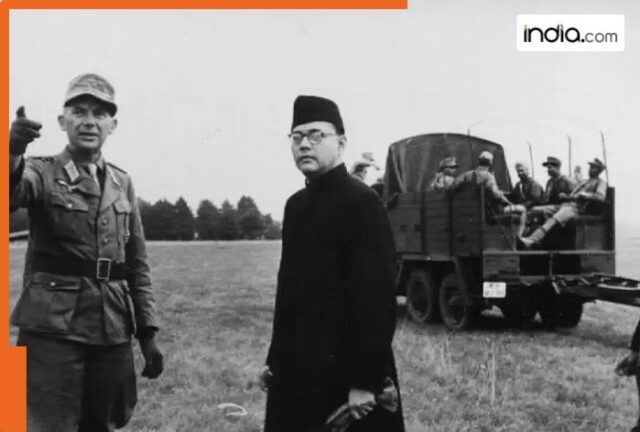In 1927, he was appointed General Secretary of the Congress and collaborated closely with Jawaharlal Nehru to advance the cause of independence.
New Delhi: In 2025, we commemorate the 128th birth anniversary of Netaji Subhas Chandra Bose, reflecting on his remarkable achievements and legacy. Netaji Subhas Chandra Bose Jayanti is celebrated annually on 23 January to honour the birth anniversary of one of India’s most iconic freedom fighters, Subhas Chandra Bose. Subhas Chandra Bose was born on January 23, 1897, in Cuttack city, Odisha (then Bengal), to a prominent lawyer Janakinath Bose and Prabhavati Bose.
Subhas Chandra Bose: Early Life and Education
Subhas Chandra Bose was the ninth child of Janakinath Bose and Prabhavati Devi. His father was a prominent lawyer who held the title of “Rai Bahadur.” Bose completed completing his BA in Philosophy from Presidency College, Calcutta (now Kolkata). Inspired by the teachings of Swami Vivekananda and Ramakrishna at 16, Subhas Chandra Bose developed a deep sense of patriotism. He later moved to England to prepare for the Indian Civil Services Examination, where he excelled, securing fourth place.
Bose became an ICS (Imperial Civil Service) officer (which is now known as IAS). In 1920, Bose secured the fourth position in the ICS ranking.
Subhas Chandra Bose and Indian National Congress:
Subhas Chandra Bose had a very long association with the Indian National Congress. He became one of the key members of the party and a close associate of Mahatma Gandhi in his non-cooperation movement. Under the guidance of Chittaranjan Das, whom he regarded as his political mentor, Bose started his political journey.
In 1927, he was appointed General Secretary of the Congress and collaborated closely with Jawaharlal Nehru to advance the cause of independence. Elected as President of the Indian National Congress in 1938, he envisioned rapid industrialization and complete independence. However, his vision clashed with Gandhi’s emphasis on self-reliance and cottage industries, ultimately leading to his resignation in 1939.
In October 21, 1943, Bose announced the establishment of the Provisional Government of Free India and proudly hoisted the Indian flag in the Andaman and Nicobar Islands. The INA’s rallying cry, “Delhi Chalo,” and its salutation, “Jai Hind,” ignited the spirit of patriotism and motivated countless Indians to join the struggle for independence.
















































